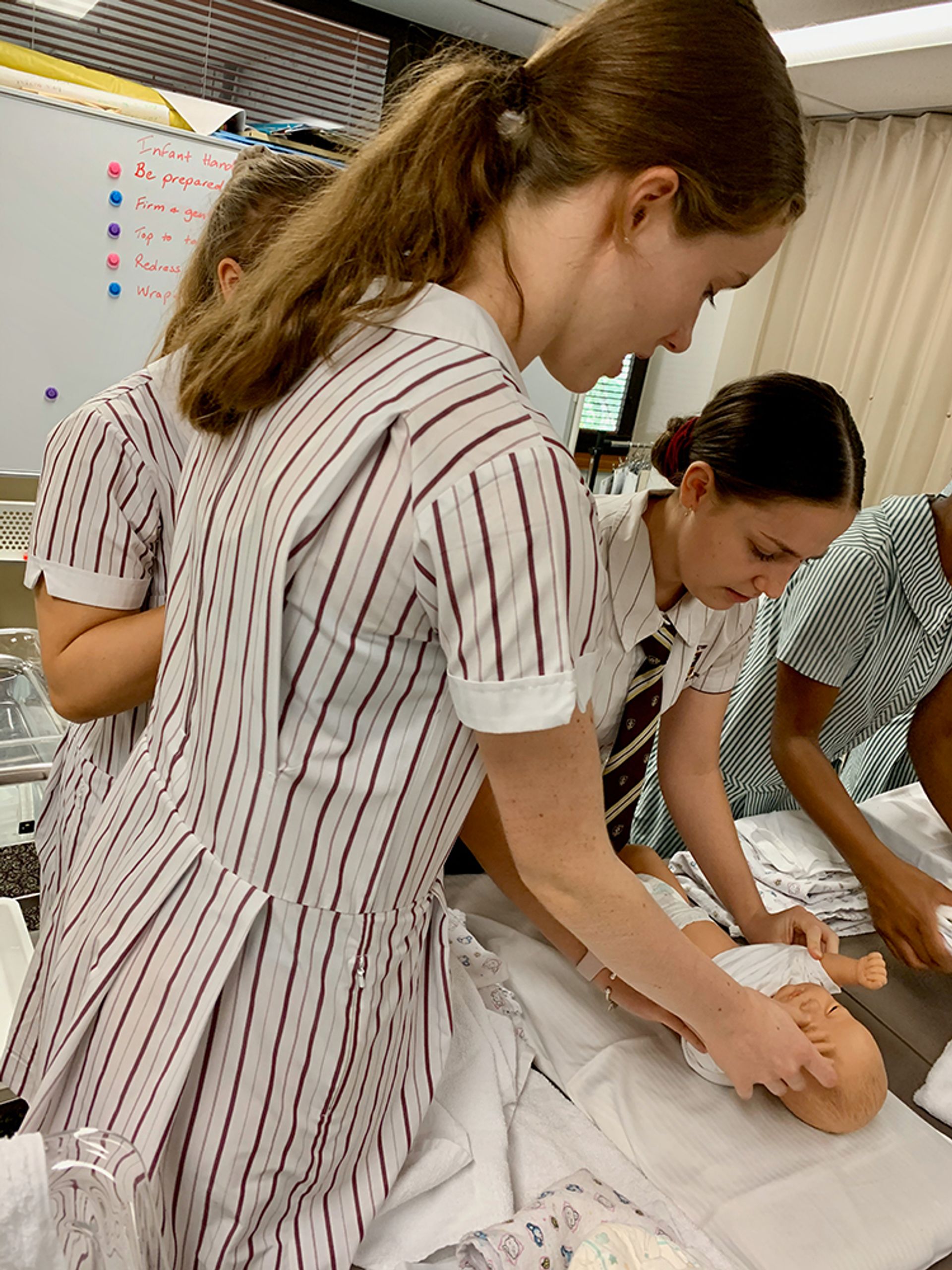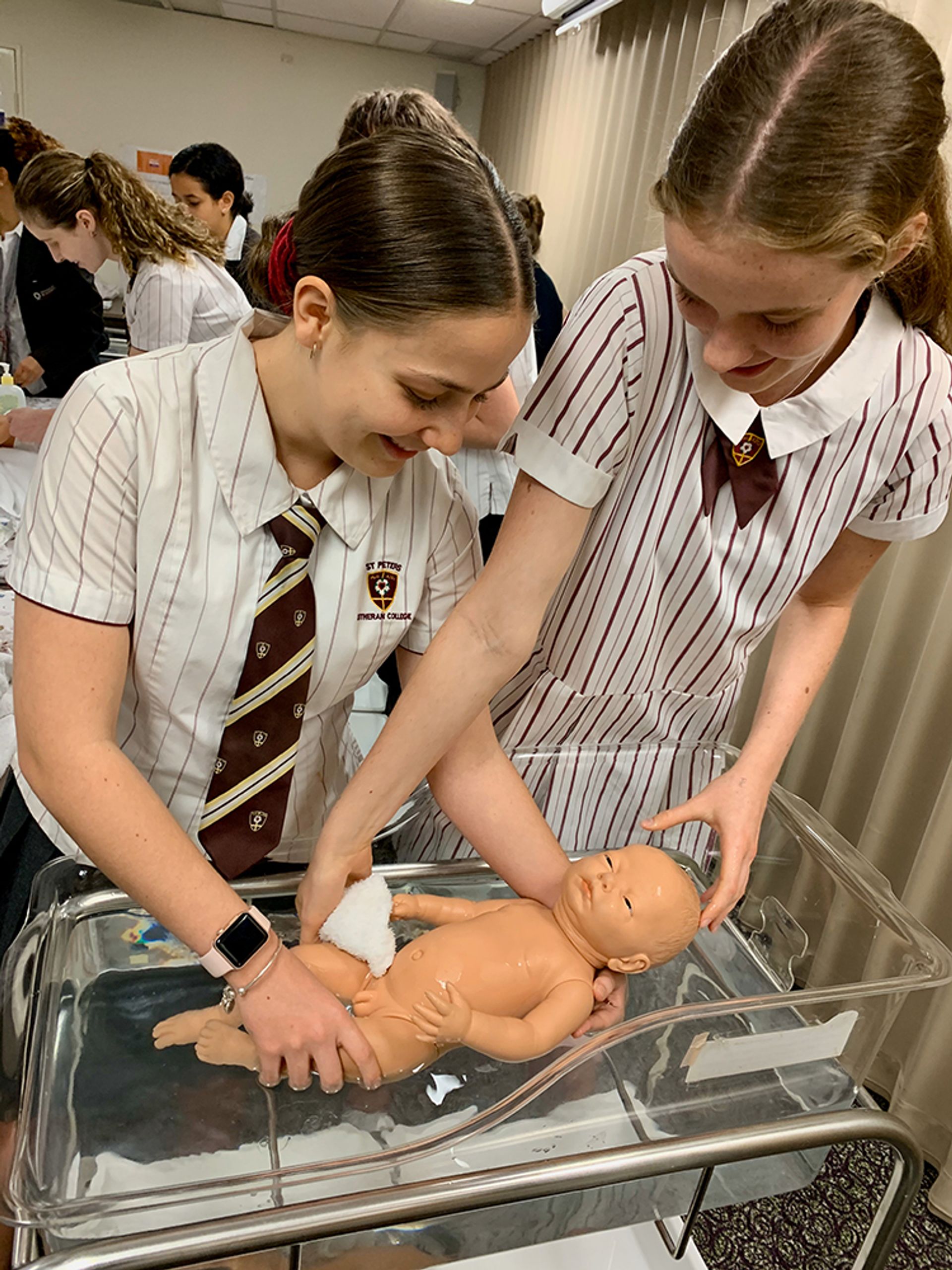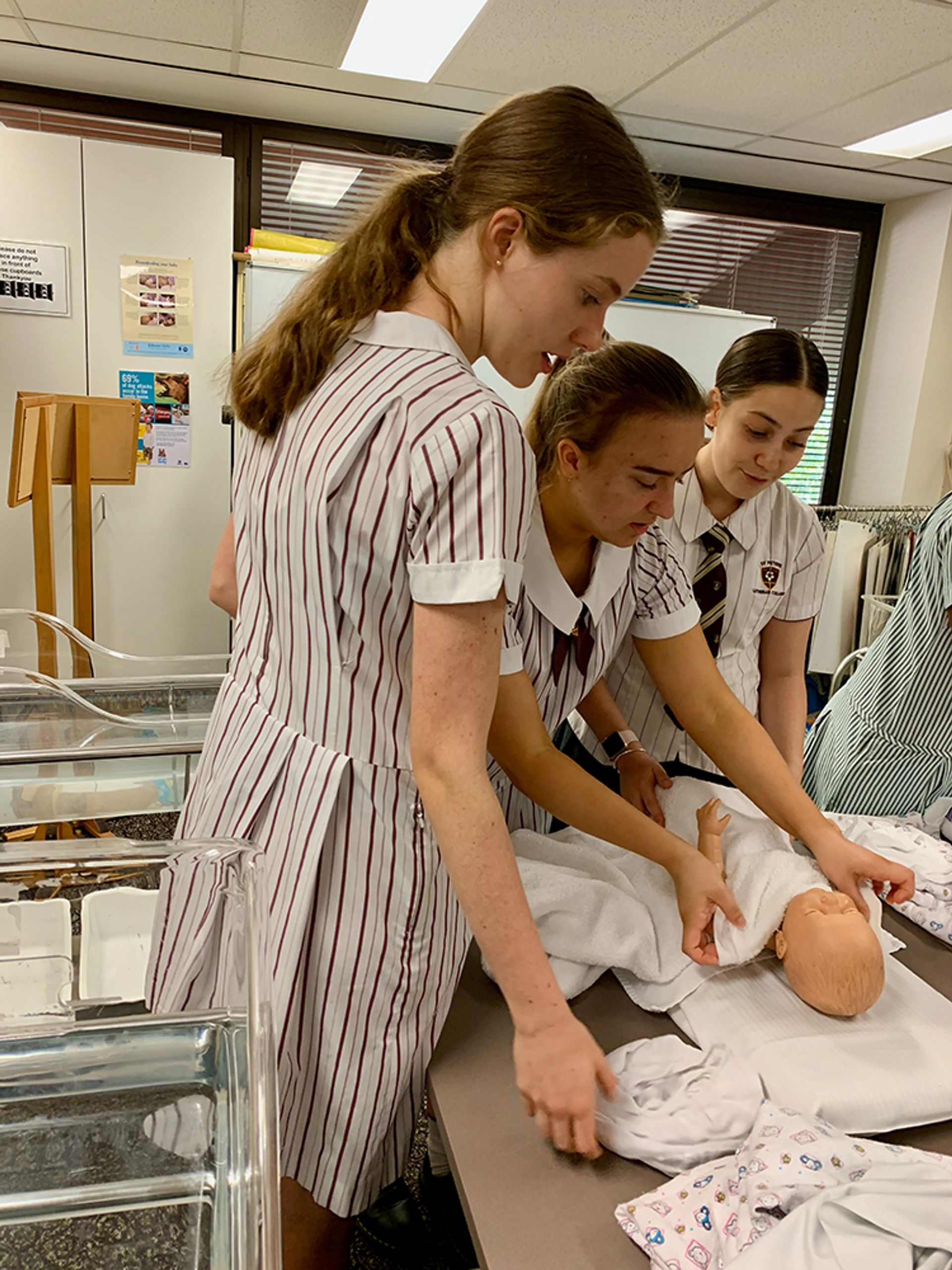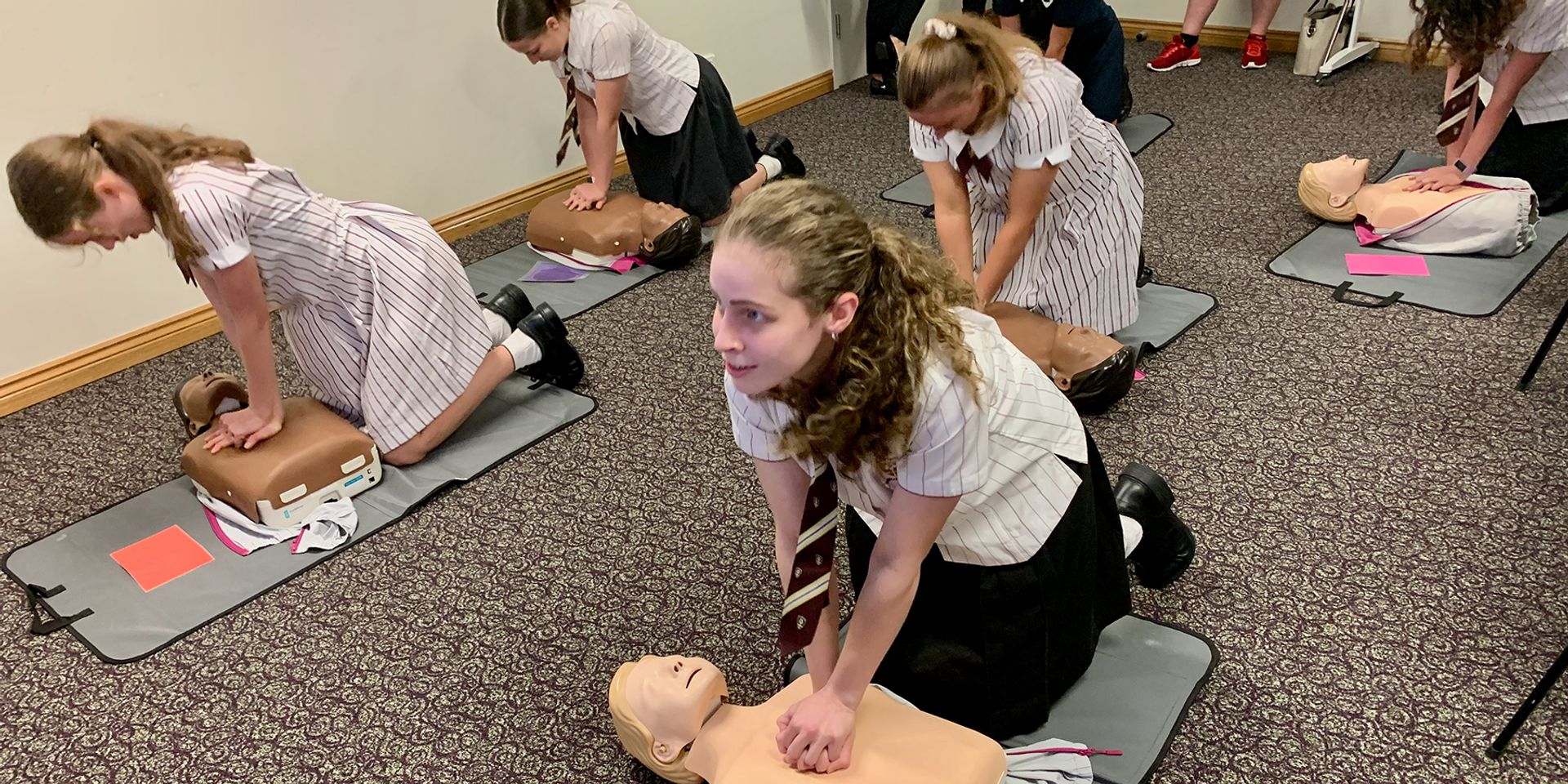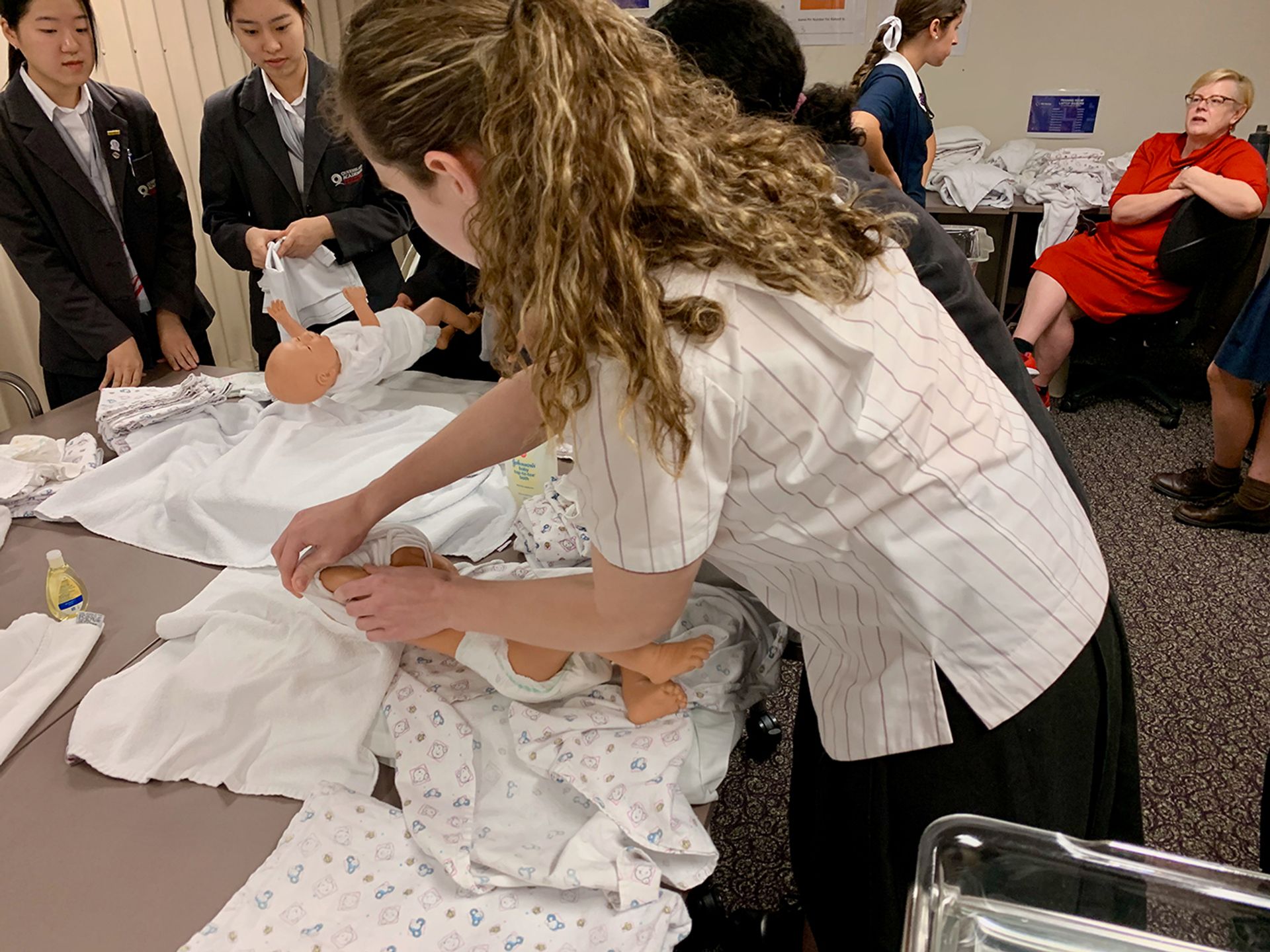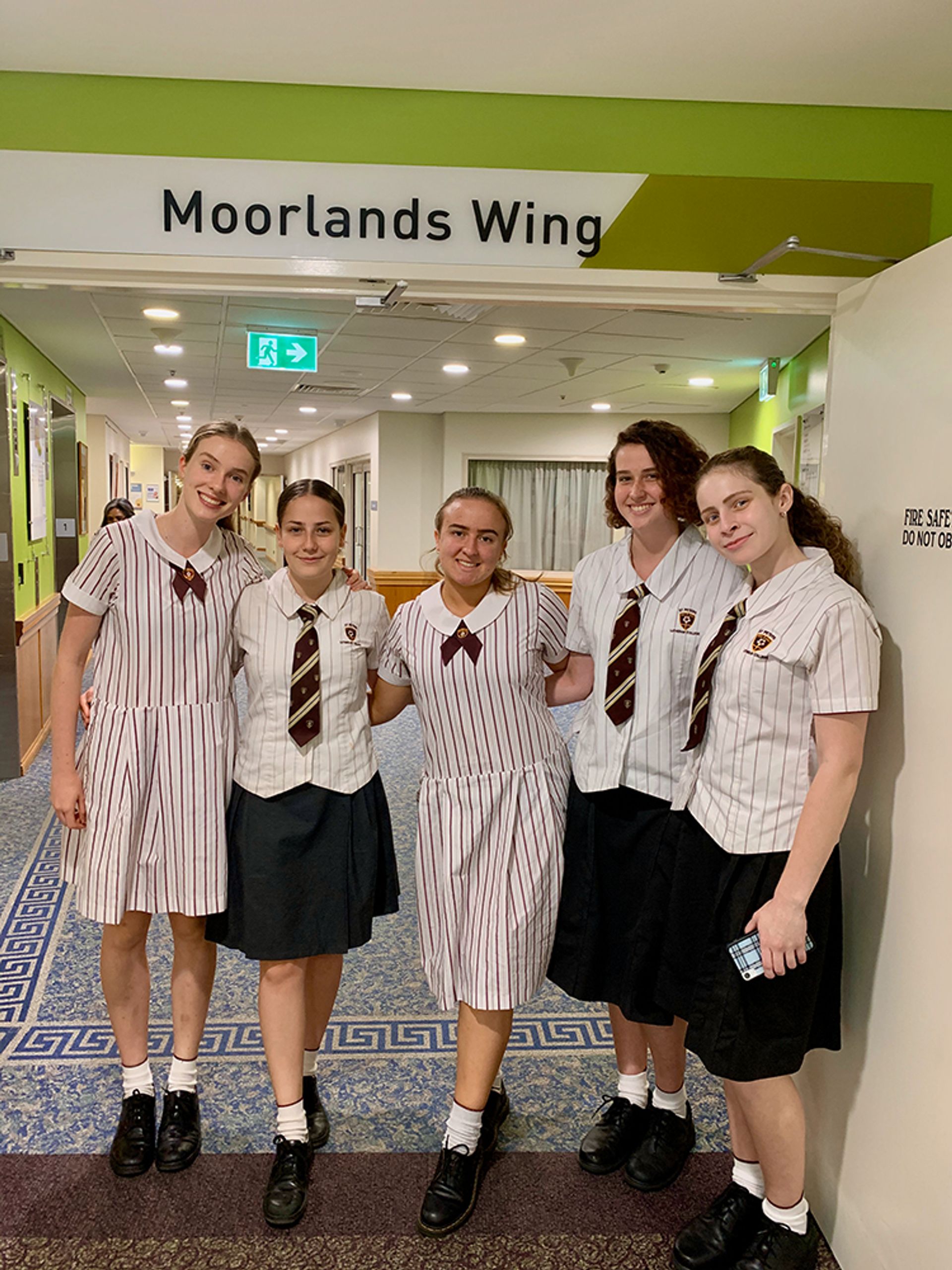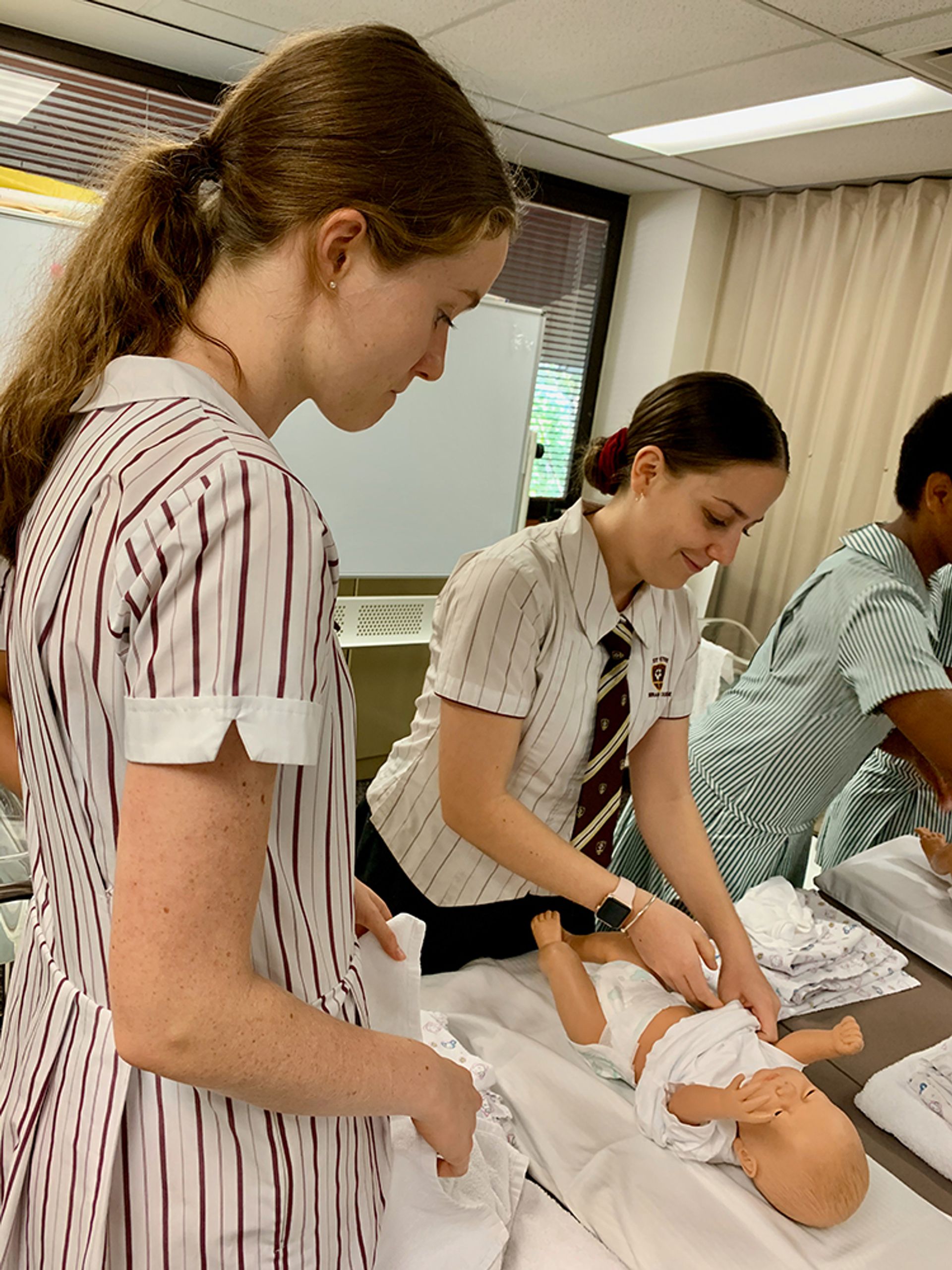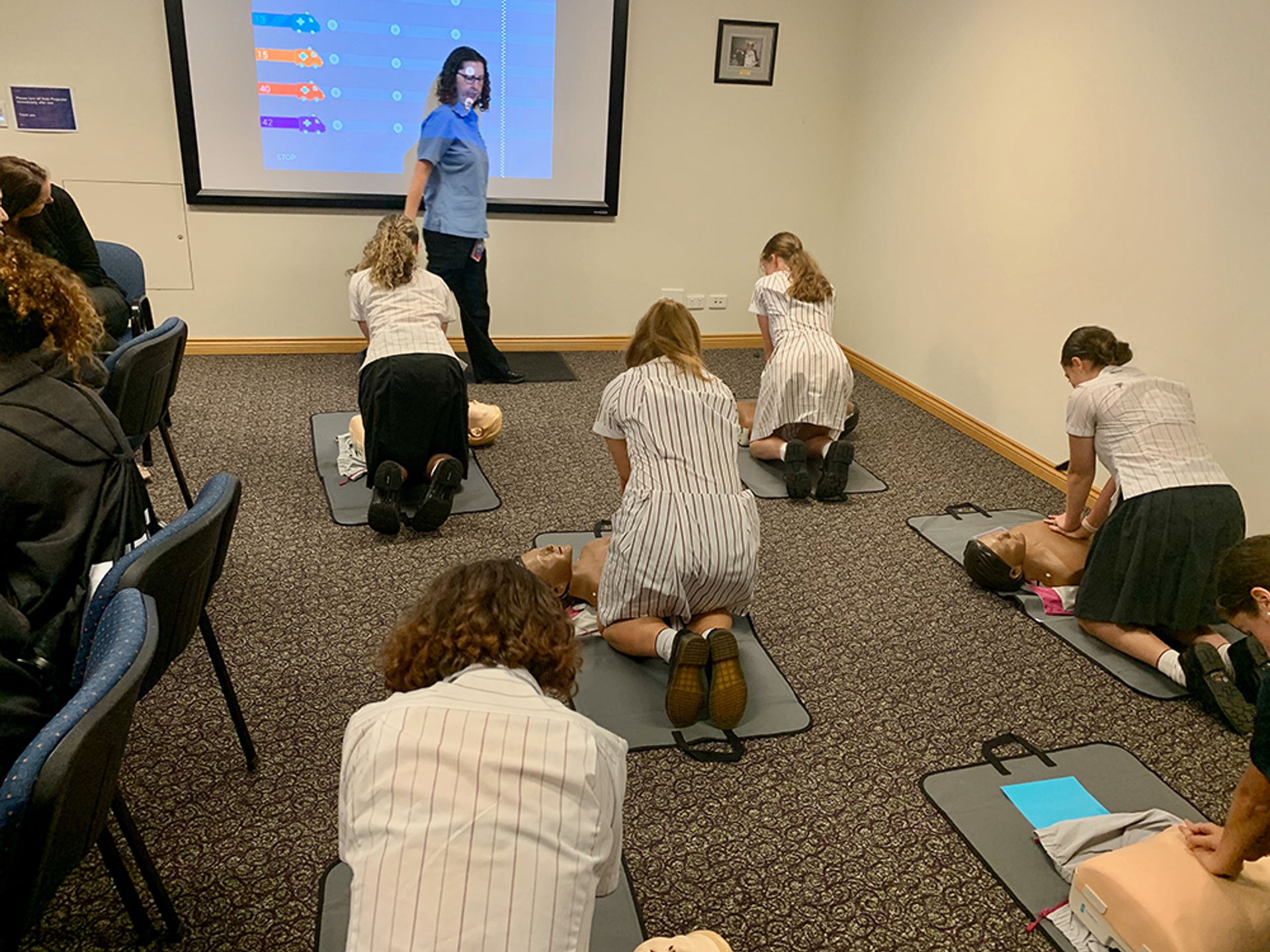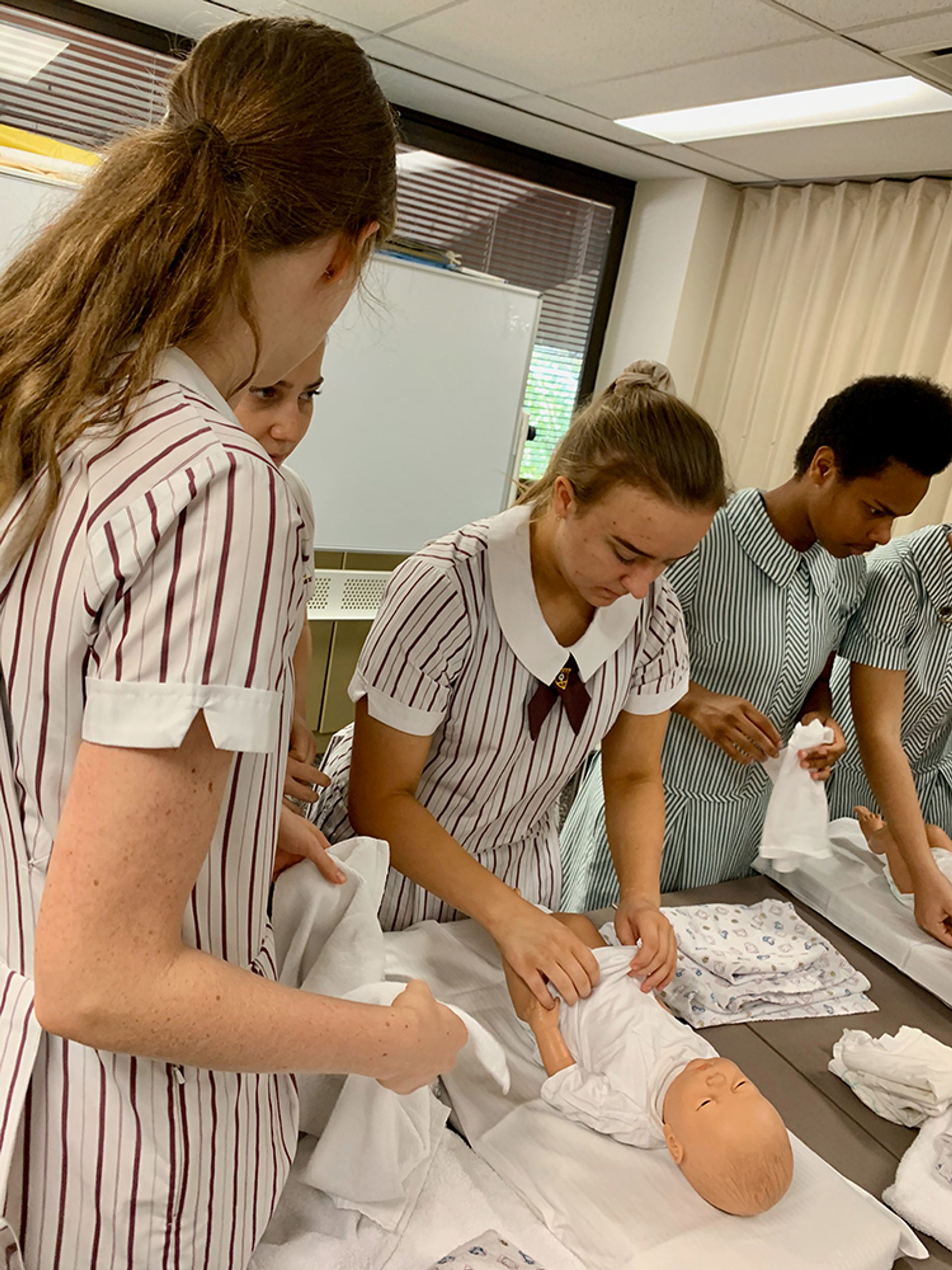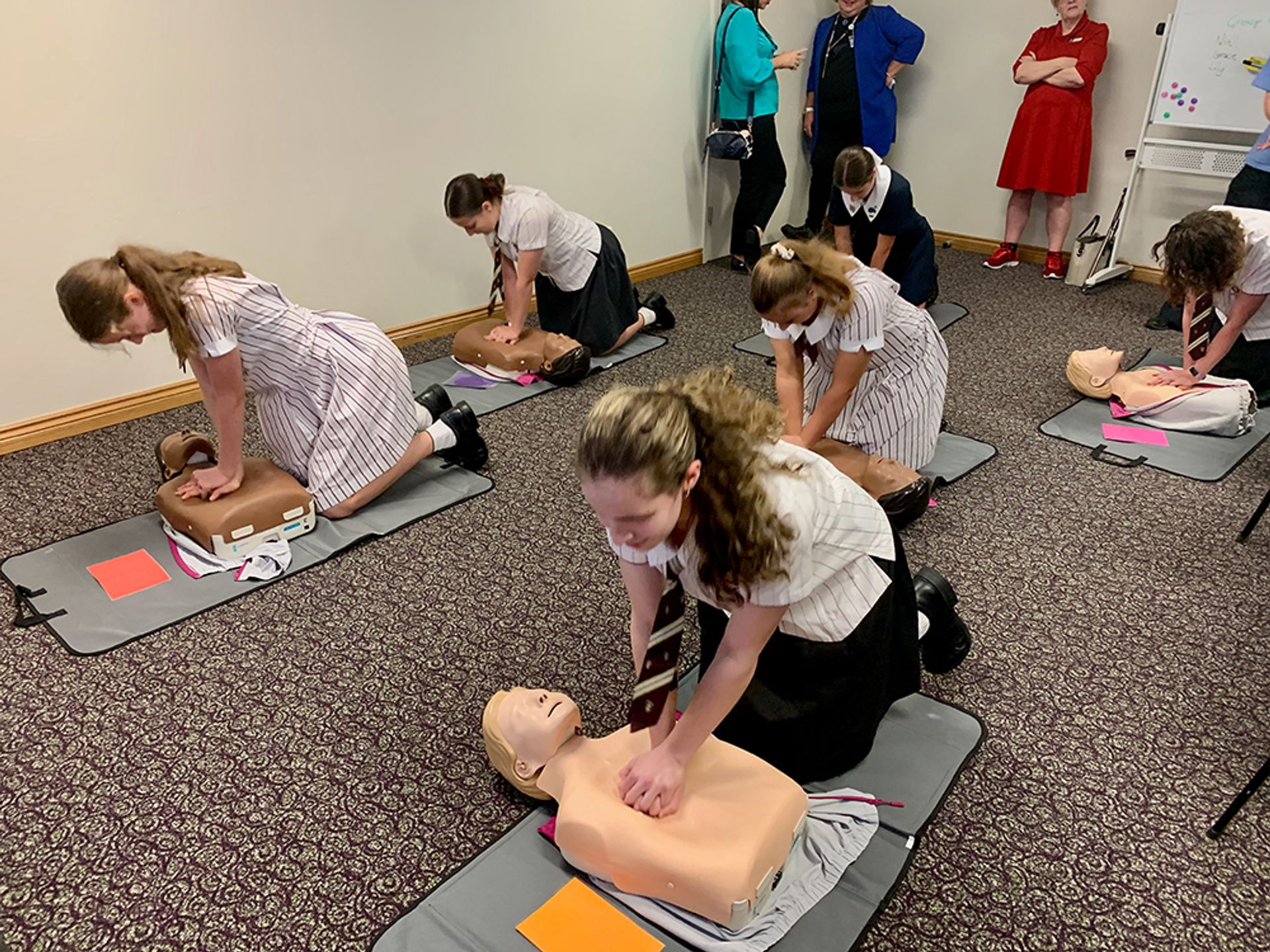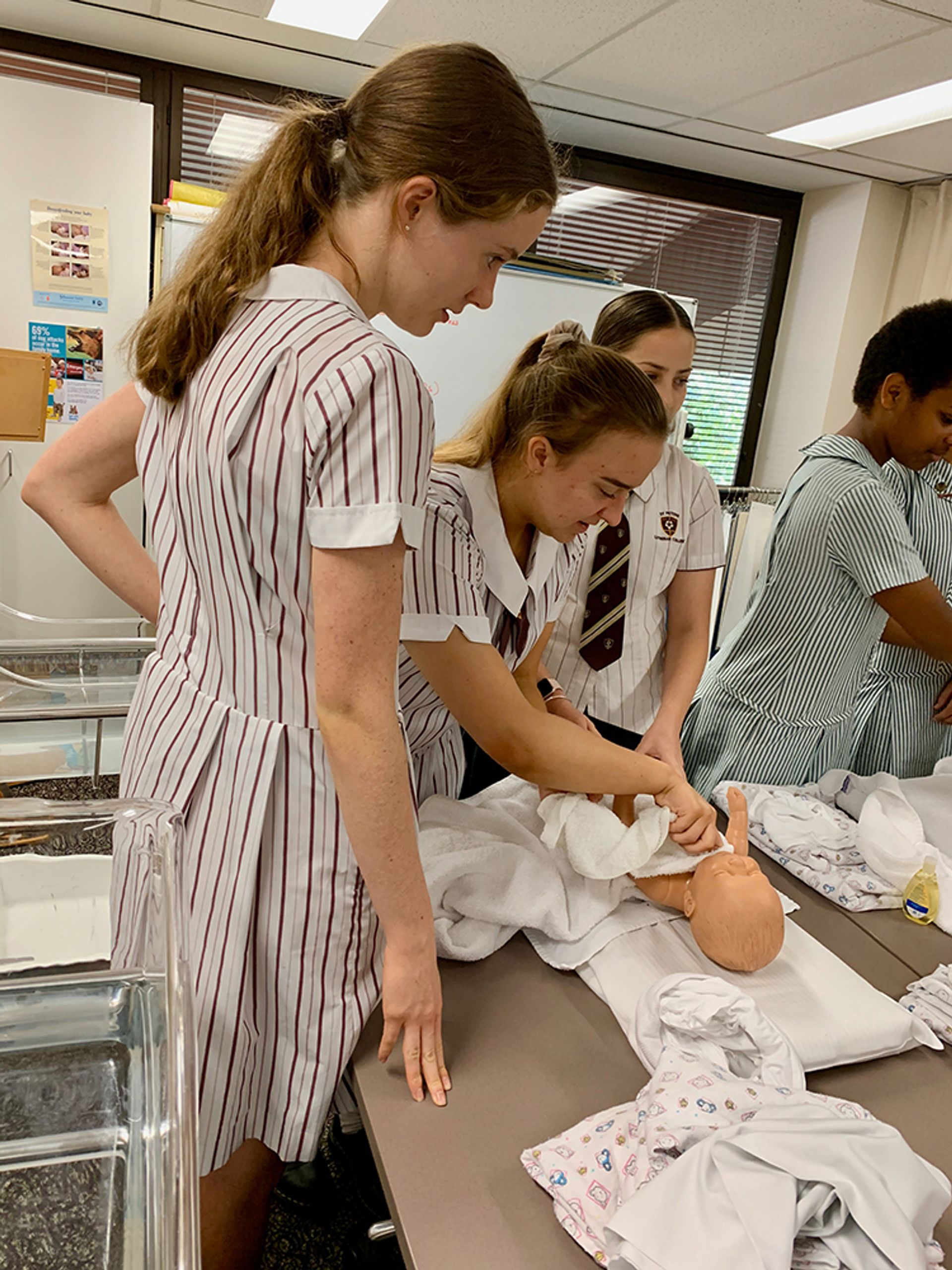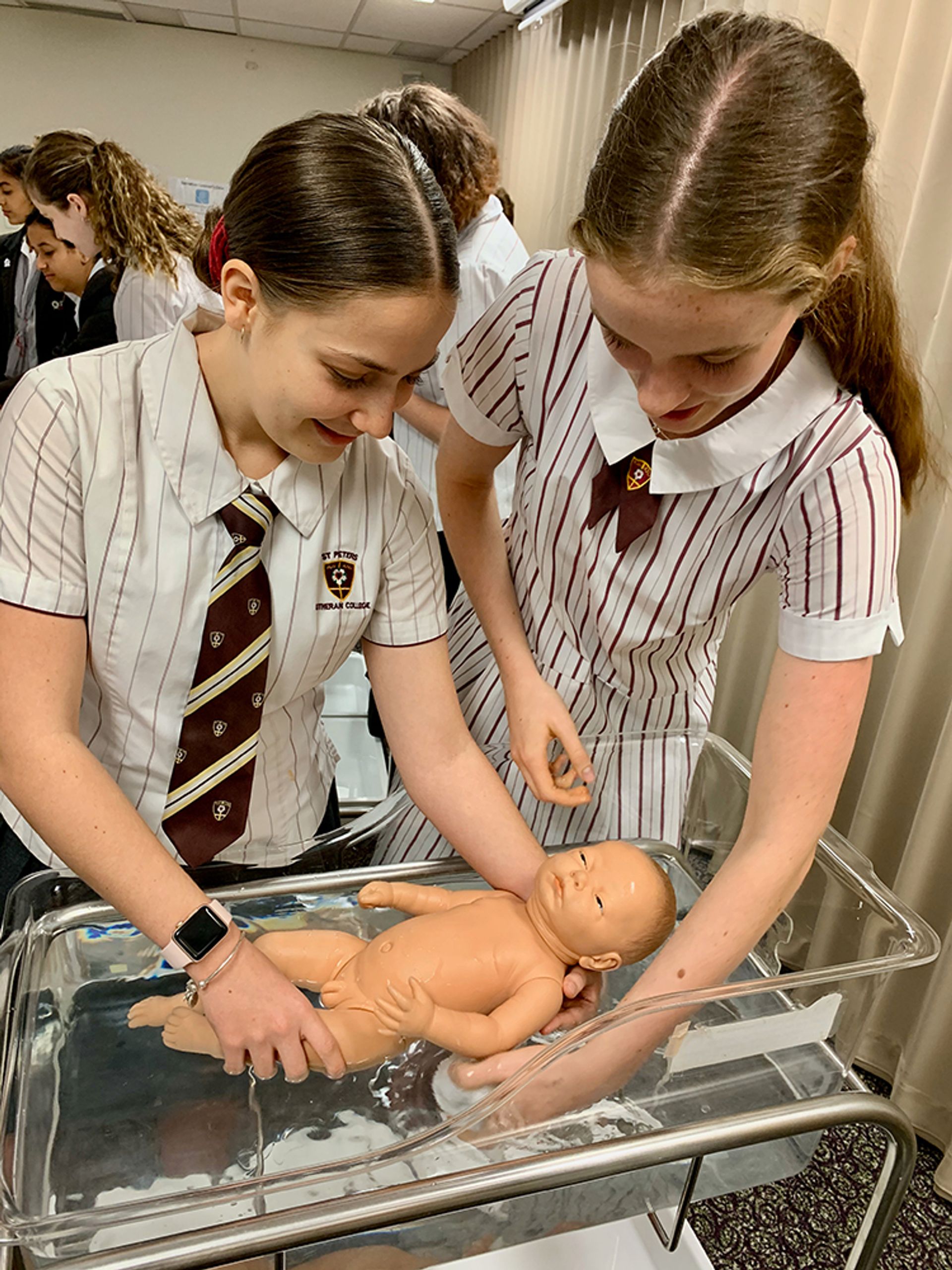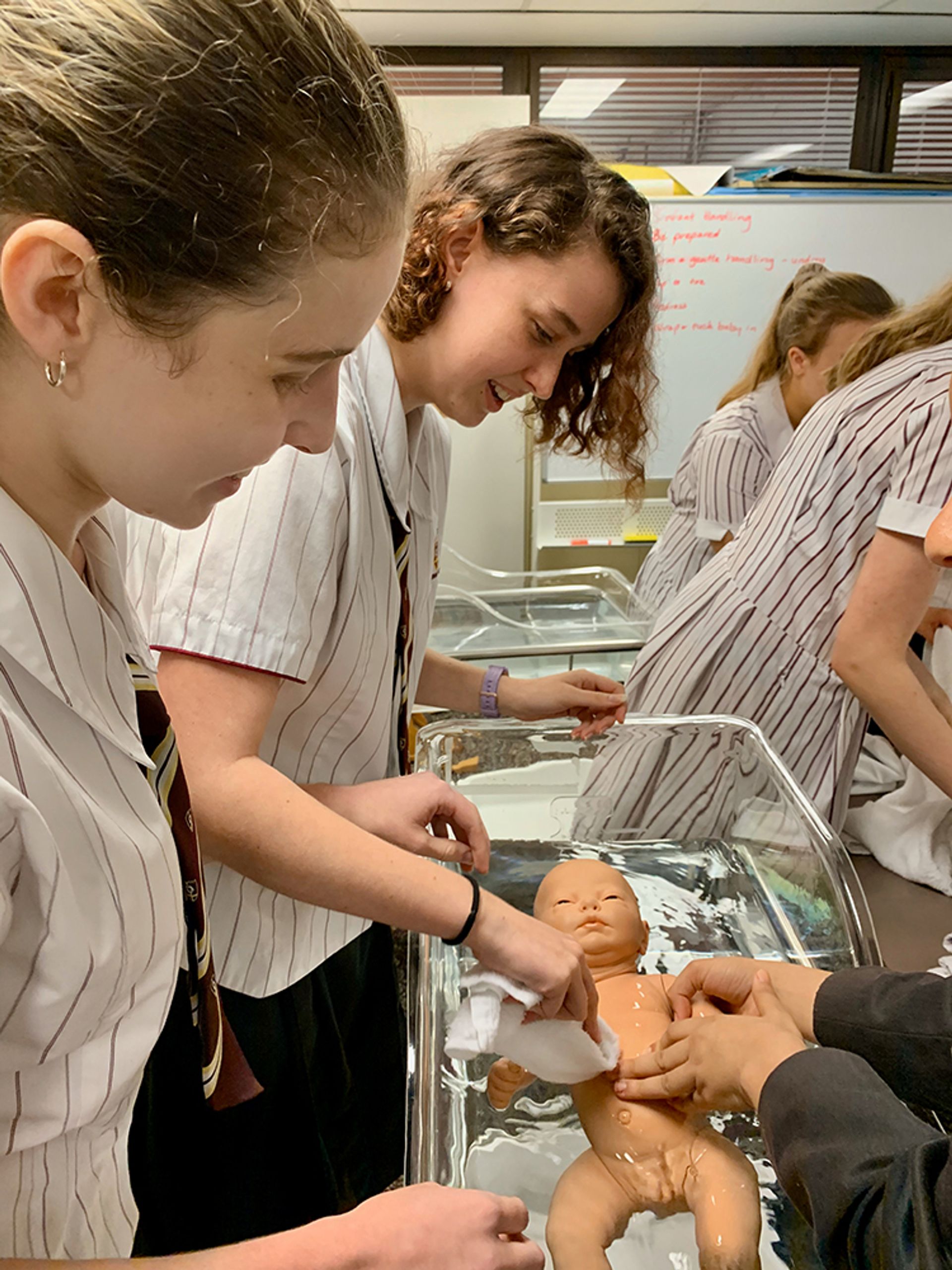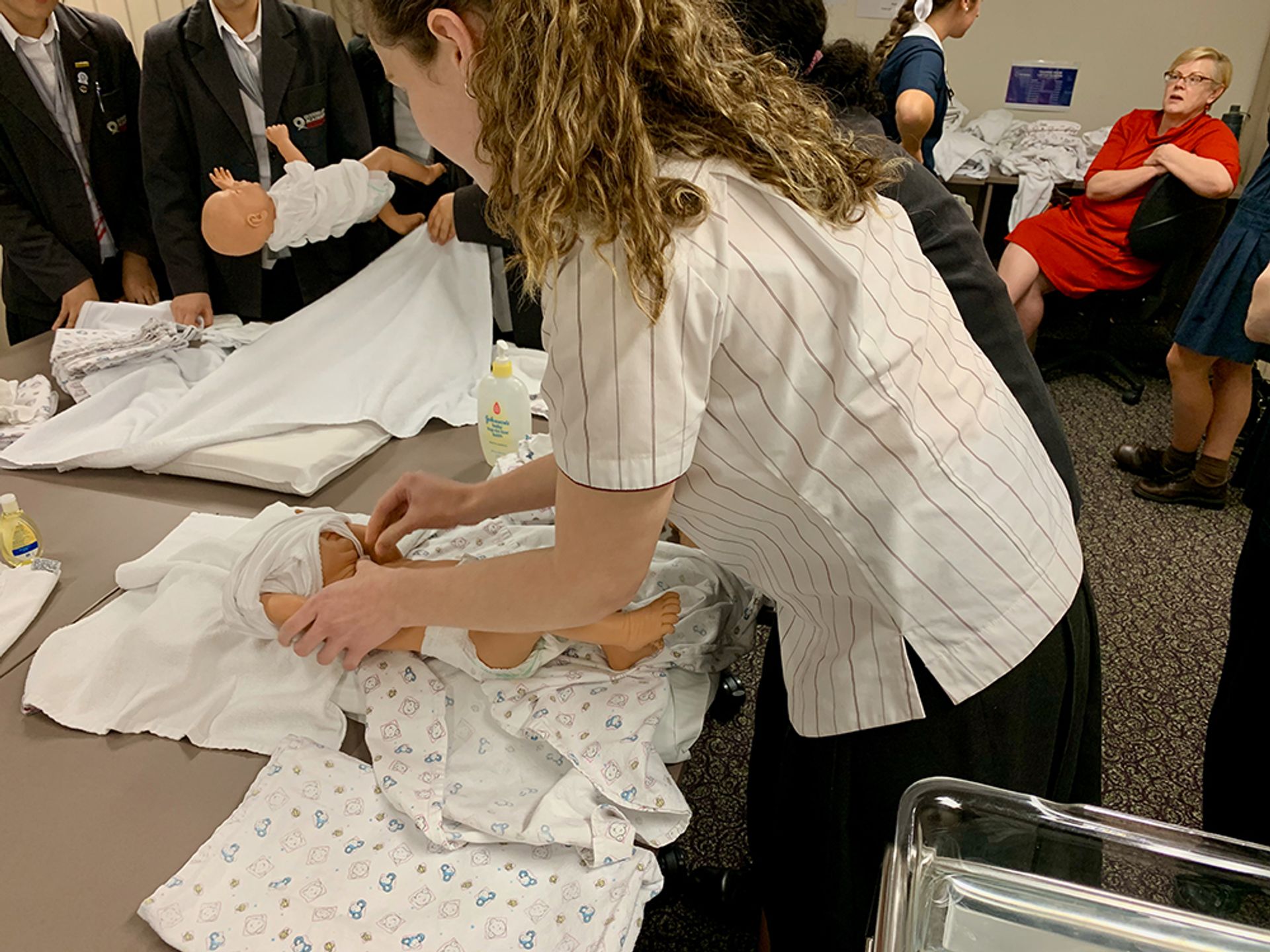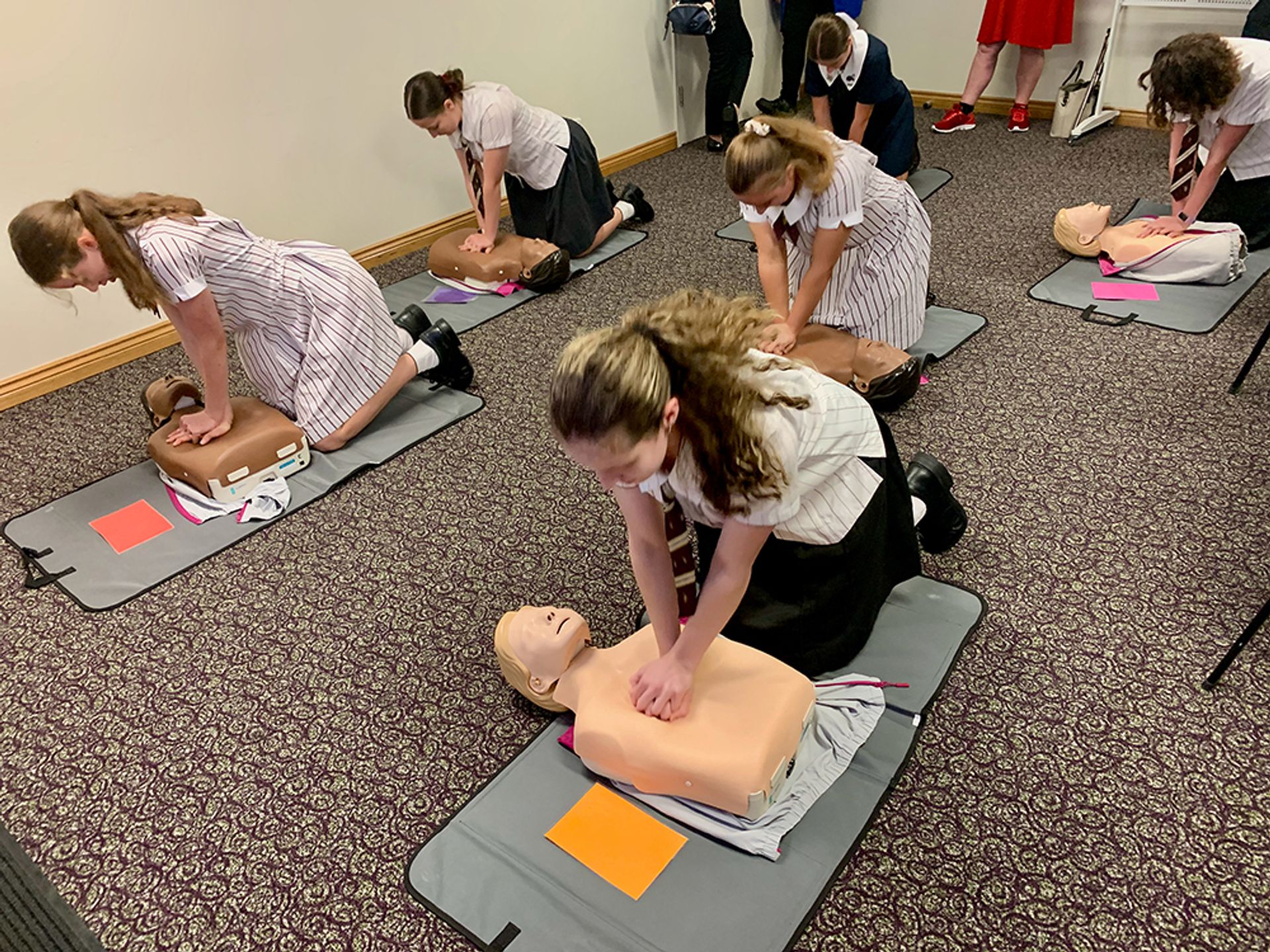During the Wesley Healthcare Day, St Peters students participated in rounds of practical activities as well as multiple Q & A sessions with healthcare professionals. During the day students were shown specialist equipment and learned some techniques for everyday patient checkups. They spoke with a palliative care doctor, members of the allied health industry, such as dieticians and speech pathologists, as well as a range of different nursing staff. This gave students invaluable insight into the positives and negatives of their respective jobs, their path of study and real world information.
During rotations, students were taught skills from the healthcare industry such as bathing babies, IV and injection processes, fluid balance, CPR and others. During these rounds students were able to speak to different people about their jobs and ask valuable questions. The mix of hands-on and Q & A style learning allowed for a highly engaging and enjoyable day full of helpful information.
Cassie B., “Learning about a range of allied healthcare positions was interesting. It taught me more about the industry and professions I was unfamiliar with. After talking with nurses and midwifes there, I am considering a potential career in the area. I appreciated the information about nursing, in terms of where it can lead, the control you have, and the role compared to a doctor’s role. Knowing I can take the role further to specialise makes nursing and midwifery appealing to me. After the day at the Wesley I would be open to the idea of working in a hospital and loved the sense of community I saw there.
“The major benefit from the Wesley healthcare day was information I needed to make some big career decisions. I am now 100% sure I want to go into the healthcare industry. Experiencing first-hand what goes on in different roles made me feel excited about a potential future in the industry I am already passionate about.”
Maryanne T., “Being apart of a program presented many opportunities. It takes time to figure out what you want to pursue and it’s good to explore options. Once you’re in the health industry you can move around and join different career paths which I found useful. I went into the day thinking I wanted to do nursing and paramedicine, but my views have now changed and I want explore other fields like physiotherapy or radiography.
“There are nurses who specialise either in ICU or emergency and everyone has a critical role in order for the hospital to function efficiently. The staff I met were friendly, extremely interactive, and gave great advice. All fields and specialties within hospitals interact, for example, speech therapists work with dieticians and radiography and even physiotherapists. Some medical professionals have multiple specialties and rarely stay within the same career path.”
Olivia H., “I participated in clinical skills lab rotations including vital signs (measuring blood pressure, oxygen levels, temperature etc.), infant care and basic life support. It provided an insight into everything that happens behind the scenes at the hospital and showed how vital each individual person is in ensuring the hospital can provide the best quality care possible.”
Laura B., “Listening to trained professionals share their experiences was valuable and being immersed in the real environment had a huge impact. I enjoyed the hands-on rotations where we gained practical experience in smaller groups. Being able to chat with clinicians during breaks was equally well received and any questions I had were answered in an open and friendly environment. I am grateful to all those involved for taking time out of their busy day. They were all passionate about their jobs and willing to share information.”
Ella R., “I would love to enter this allied health profession as I have great passion in caring for children and would love to peruse this career path.”


